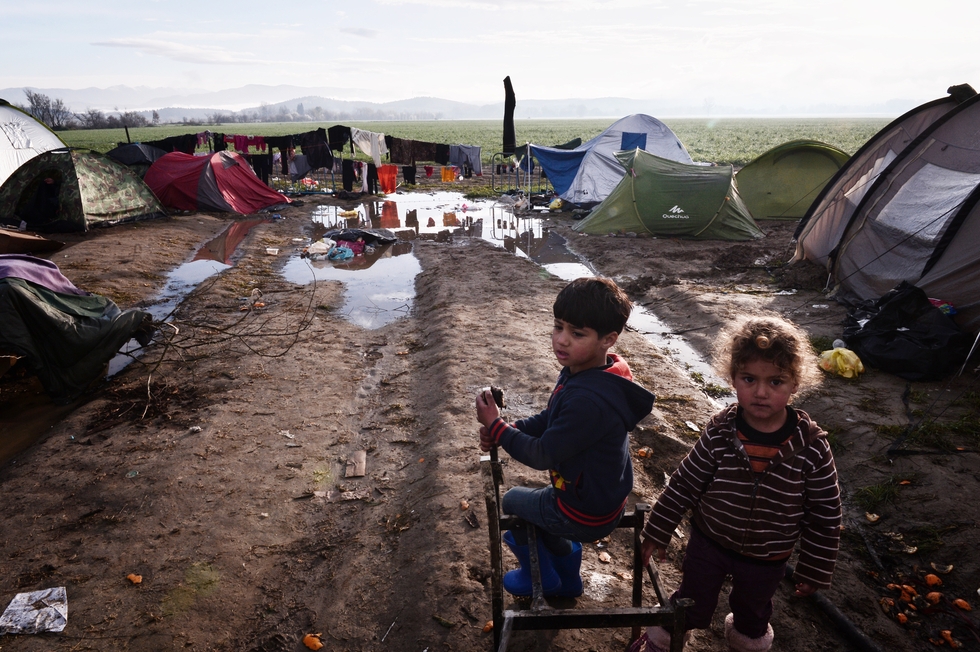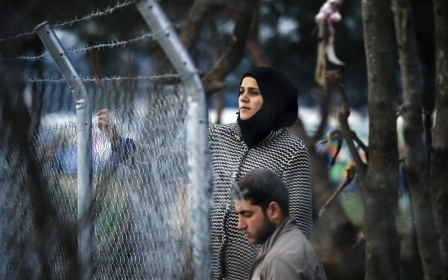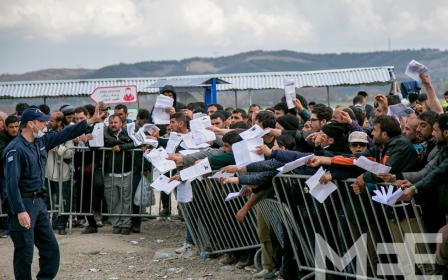Numbers of asylum seekers to Europe doubled in 2015

A record 1.2 million asylum seekers reached Europe in 2015, more than double the previous year, new figures showed Friday as EU head Donald Tusk met Turkey's Tayyip Erdogan on the crisis.
The sheer scale of the crisis that is dividing EU nations and fostering nationalist sentiment was underscored by Eurostat figures showing the number of asylum applications in 2015 doubled that of the previous year.
Of the 1.25 million first-time asylum seekers arriving in the EU, Syrians fleeing the civil war made up the largest group, numbering nearly 363,000, followed by 178,200 Afghans and 121,500 Iraqis.
Germany was the single largest recipient of asylum applications in 2015, at 441,800 or some 35 percent of the total, with Hungary taking 174,400 or 14 percent and Sweden 156,100 or 12 percent.
With Tusk wrapping up a whirlwind diplomatic tour before a crucial EU-Turkey summit in Brussels on Monday, the EU unveiled a plan for saving the passport-free Schengen zone that has been jeopardised by the huge influx of migrants and refugees.
Tusk has said the numbers of people crossing the Aegean Sea from Turkey to reach the Greek islands were "far too high" and was to push the Turkish president for more intensive help.
The sea crossing has been the scene of hundreds of deaths, and a Turkish court on Friday jailed two Syrian people smugglers over the death of Alan Kurdi, the three-year-old boy whose drowned body washed up on a beach in Turkey last September, provoking worldwide outrage.
Diplomatic efforts have also done little to relieve the human misery along the Greek-Macedonia border where conditions worsened after a night of driving rain and plummeting temperatures.
The humanitarian crisis is particularly acute at the Idomeni crossing where around 12,000 people are stranded after Austria and the Balkan states imposed a cap on entries, triggering a rapidly growing build-up in Greece.
"It was very difficult, nobody slept, and this morning the children were crying," said Teshrina Sharif, a Syrian woman travelling alone with a three-year-old and a five-year-old.
Turkey flows must fall 'drastically'
Greece is the main entry point for migrants who have reached Europe by sea from Turkey over the past 14 months, prompting increasingly frantic diplomatic efforts to curb Europe's worst migration crisis since World War II.
Separate figures from the EU showed that an average of 1,943 people were still crossing to Greece every day in February, way above what Brussels is expecting from Ankara.
"We need to see the flows from Turkey drastically down soon," EU Migration Commissioner Dimitris Avramopoulos told a news conference as he unveiled the bloc's new "roadmap" for Schengen.
The plan calls for the end of temporary border controls reintroduced by several member states and the restoration by the end of 2016 of full free travel across the 26-country Schengen zone.
Brussels also called for the creation of an EU coastguard force by the summer, help for Greece to strengthen its external border, and to ensure the cooperation of Turkey in stemming the flow of refugees.
'Existential' threat
With the UN warning the border closures could leave Athens with 70,000 people stranded on its soil in the coming weeks, the EU has offered 700 million euros ($767.4 million) in emergency funding for Greece and other states.
If Schengen collapses and border controls return it could cost the EU between five billion and 18 billion euros ($5.5-$20 billion) a year - equivalent to 0.05 percent to 0.13 percent of the bloc's entire economic output, Brussels said.
Tusk has bluntly warned economic migrants to stay away from Europe, in remarks on Thursday as he arrived in Ankara for talks with Prime Minister Ahmet Davutoglu, who will attend the Monday Brussels summit.
"Do not come to Europe," he said. "Do not believe the smugglers. Do not risk your lives and your money. It is all for nothing."
The crisis now poses an "existential" threat to the EU that challenges its ideals of peace and solidarity that were formed in the ashes of World War II, former European Commission chief Jose Manuel Barroso told AFP.
"I really believe it's the most serious crisis in many years the European Union is facing, probably even the most serious since the beginning of the process of European integration," Barroso said.
Middle East Eye propose une couverture et une analyse indépendantes et incomparables du Moyen-Orient, de l’Afrique du Nord et d’autres régions du monde. Pour en savoir plus sur la reprise de ce contenu et les frais qui s’appliquent, veuillez remplir ce formulaire [en anglais]. Pour en savoir plus sur MEE, cliquez ici [en anglais].




